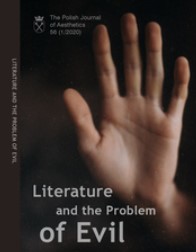The Ontology of Evil and Its Anthropological Moment of Freedom in Pär Lagerkvist’s The Dwarf and Plotinus’ Enneads (I.VII-VIII)
The Ontology of Evil and Its Anthropological Moment of Freedom in Pär Lagerkvist’s The Dwarf and Plotinus’ Enneads (I.VII-VIII)
Author(s): Miłosz PuczydłowskiSubject(s): Metaphysics, Ethics / Practical Philosophy, Comparative Study of Literature, Other Language Literature, Ancient Philosphy, Contemporary Philosophy, Theory of Literature, Ontology
Published by: Wydawnictwo Uniwersytetu Jagiellońskiego
Keywords: Ontology; Evil; Freedom; Lagerkvist; Plotinus;
Summary/Abstract: The aim of this paper is to provide a philosophical reading of a famous novel by Pär Lagerkvist entitled The Dwarf. The novel’s protagonist is to be found as the embodiment of evil. His diaries explore his own identity. Hence the paper shall employ the Dwarf's confessions to describe the ontology of evil. That will be then compared to the classical metaphysics of good and evil based on Plotinus’ Enneads. The ideas of evil’s homogenity, impenetrability, infertility and absurdity are studied. In the conclusion, the utmost importance of human freedom is indicated in these works of both Lagerkvist and Plotinus.
Journal: Estetyka i Krytyka
- Issue Year: 56/2020
- Issue No: 1
- Page Range: 85-99
- Page Count: 16
- Language: English

